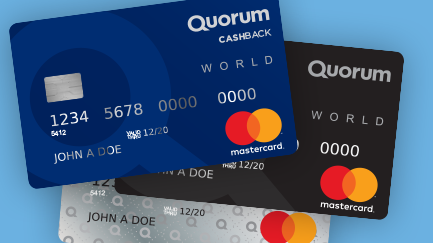It’s never too early to introduce or reinforce positive financial habits for your kids. If you’re not sure where to start, here’s a mix of simple concepts and activities you can try to set them up for a life of smart money management:
1. Create a budget.
Begin your financial education with the basics: a good old fashioned budget. Show your older children how to manage their income (whether it’s an allowance or a paycheck) by designating different portions for savings and spending, creating categories for different types of spending (e.g., entertainment, eating out, etc.), and suggesting limits for those categories.
2. Teach them ‘Pay Yourself First.’
Pay Yourself First is a financial concept based on the idea that, every time you receive income, you immediately put some towards your necessary costs. Your children don’t have bills, but they should treat contributing to their savings as necessary. Pay Yourself First will remind them to always save money before spending it.
3. Start a savings match.
To illustrate the idea of a retirement account with employer match, you can match a portion of their savings. For example, for every dollar your child saves, you contribute a quarter. They’ll surely appreciate the way their money grows in savings.
4. Shop together.
Incorporate your kids in the shopping process. Supermarkets are a good place to start. From making a list of items to comparing costs on similar products and finding coupons, involving them will highlight the financial aspects of buying food.
5. Show them how you bank.
Showing your children how you bank may be very illuminating. Show them the ATMs, how to deposit a check with your mobile device, how to use online and mobile banking, and open an account for them. Having their own account gives them a direct experience with money.
6. Let them spend their own money.
It’s important to let your younger kids spend their own money. You can make suggestions, but try to avoid setting strict rules about what they can and can’t buy. After all, the best way to learn something is through real-world experience.
7. Let them make mistakes.
It might be hard to watch your children make unwise spending decisions, but mistakes can provide valuable lessons. So if they blow their whole allowance on comic books and don’t have anything left to go to the movies, they’ll likely understand how to make a different choice with their money next time.
8. Show them different ways to pay.
Once your kids start to understand how money works, explain the different ways to make purchases. Discuss credit cards, checks, and digital payment methods like online transfers.
9. Consider giving them ‘Authorized User’ status.
If you’re comfortable with it and your children can handle the responsibility, consider making your older kids Authorized Users on your credit card. They’ll be able to use it for purchases just like you can. Just remember to explain that they must pay off their charges in full every month. Also remember that you—the cardholder—and not your child, is ultimately responsible for any charges. Be sure to monitor spending and consider setting up notifications for when new charges hit your credit card.
How to Open a Quorum Membership for Your Child:
- 18 years and older: Click here to open a Quorum membership online.
- Ages 16-17: Click here to download the membership application for minors.
- Ages 15 and younger: Click here to download our custodial account application.
*Note: If a minor requests to open a checking or savings account and their age is 16 – 17, then a parent or legal guardian MUST be named as a joint account holder, and all associated services are available to the minor. (e.g., debit card, online banking, combined statement, etc.)
If a minor requests to open a savings account and their age is 15 and younger, a custodian MUST be named. If a minor requests to open a checking account and their age is 15 and younger, an account cannot be opened.









Comments Section
Please note: Comments are not monitored for member servicing inquiries and will not be published. If you have a question or comment about a Quorum product or account, please visit quorumfcu.org to submit a query with our Member Service Team. Thank you.